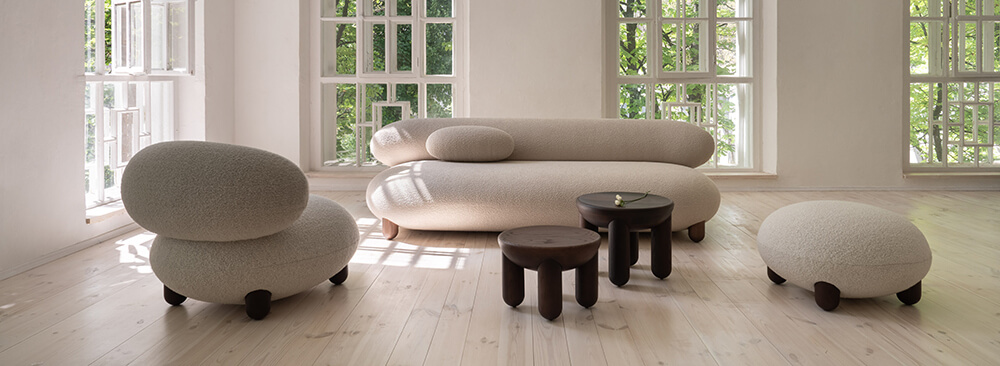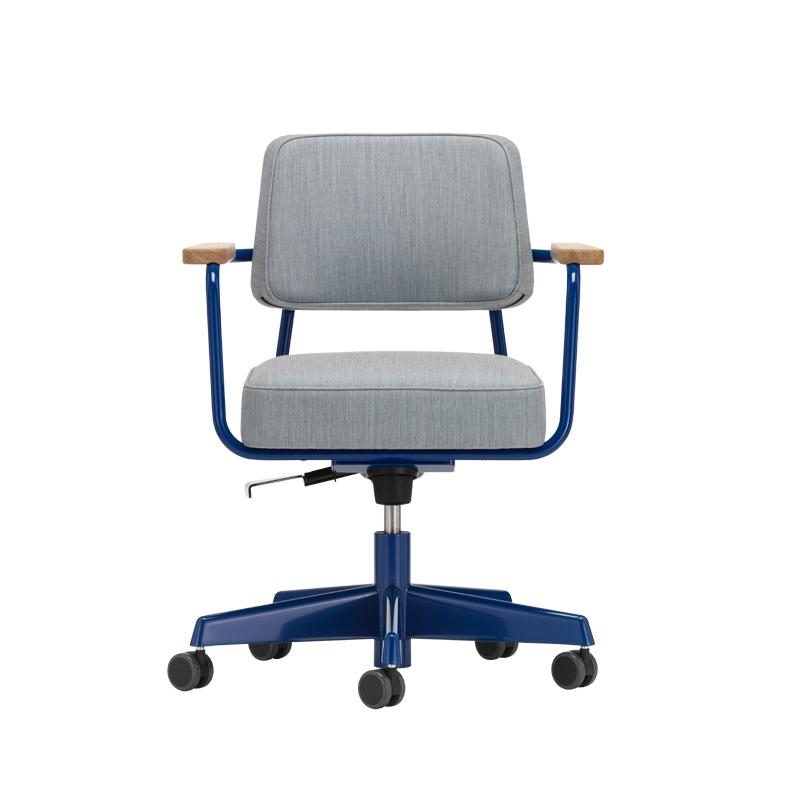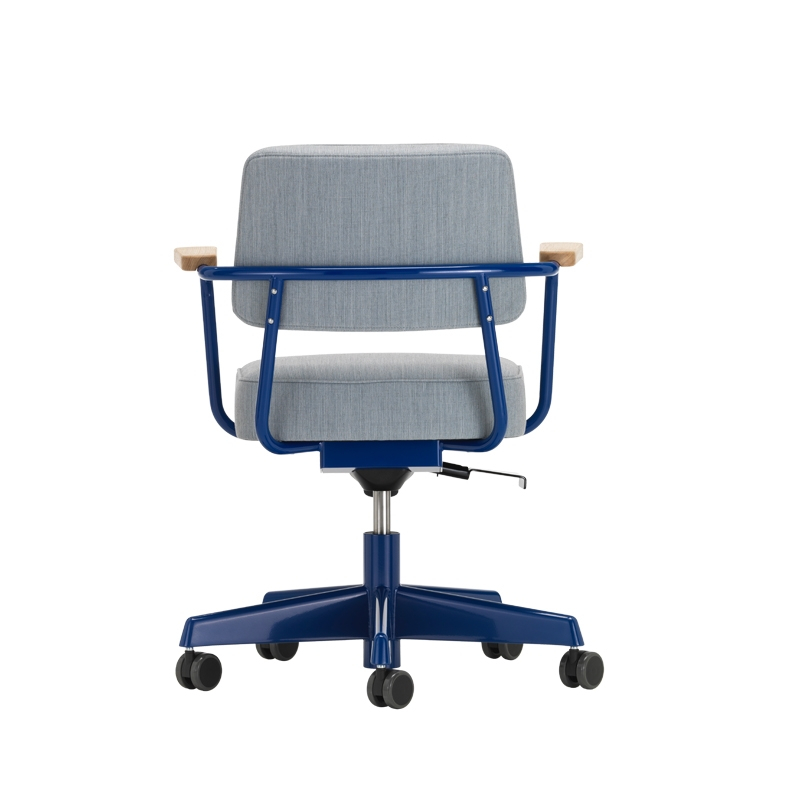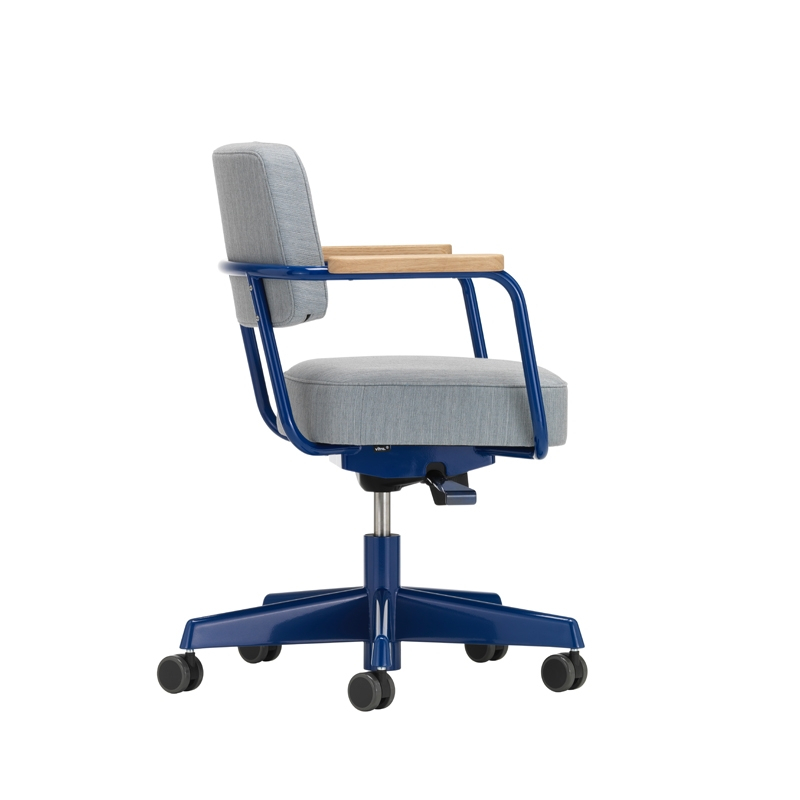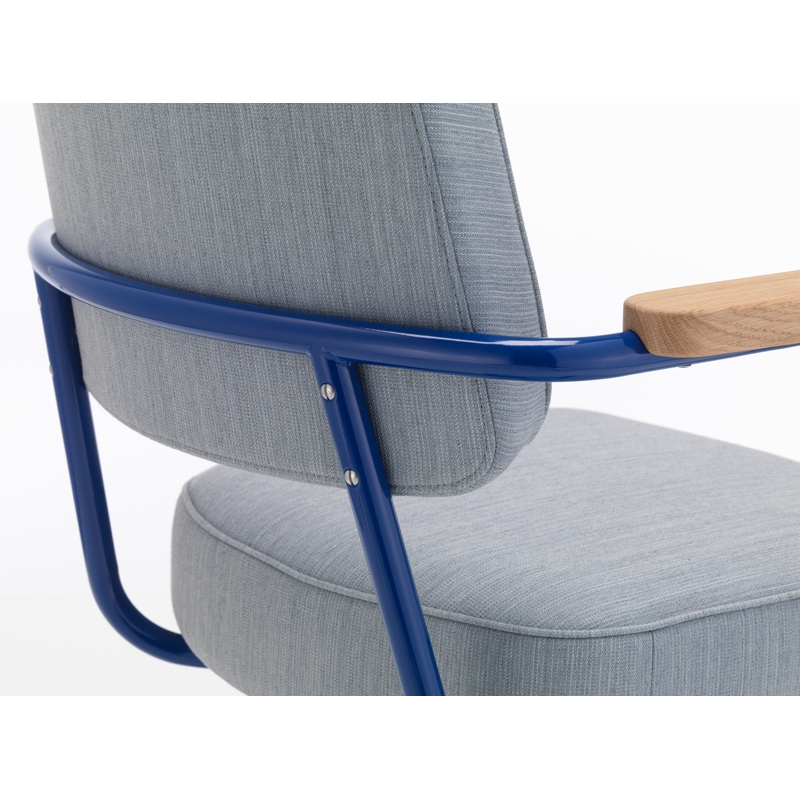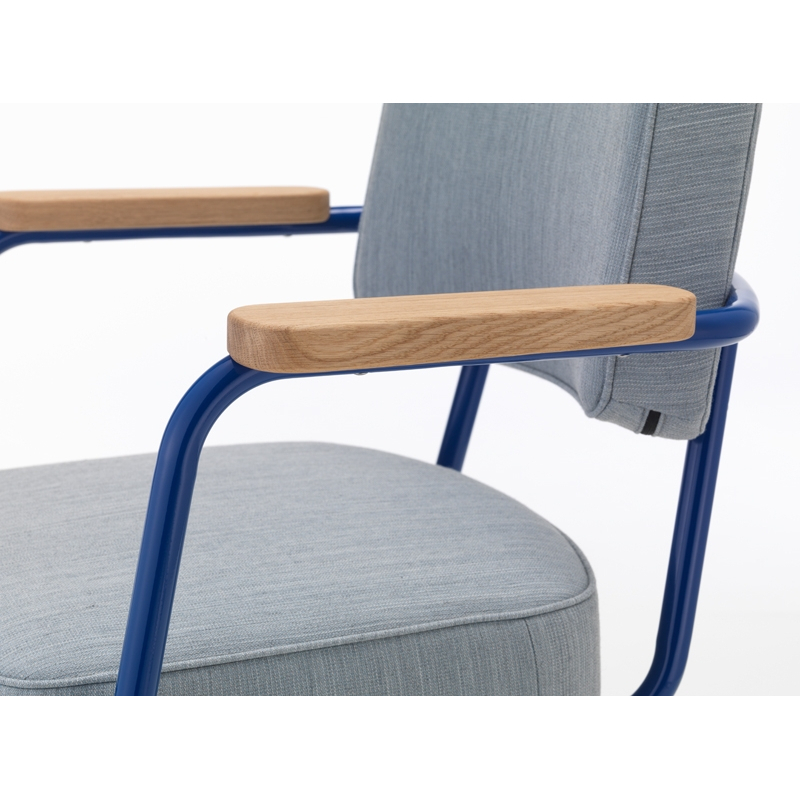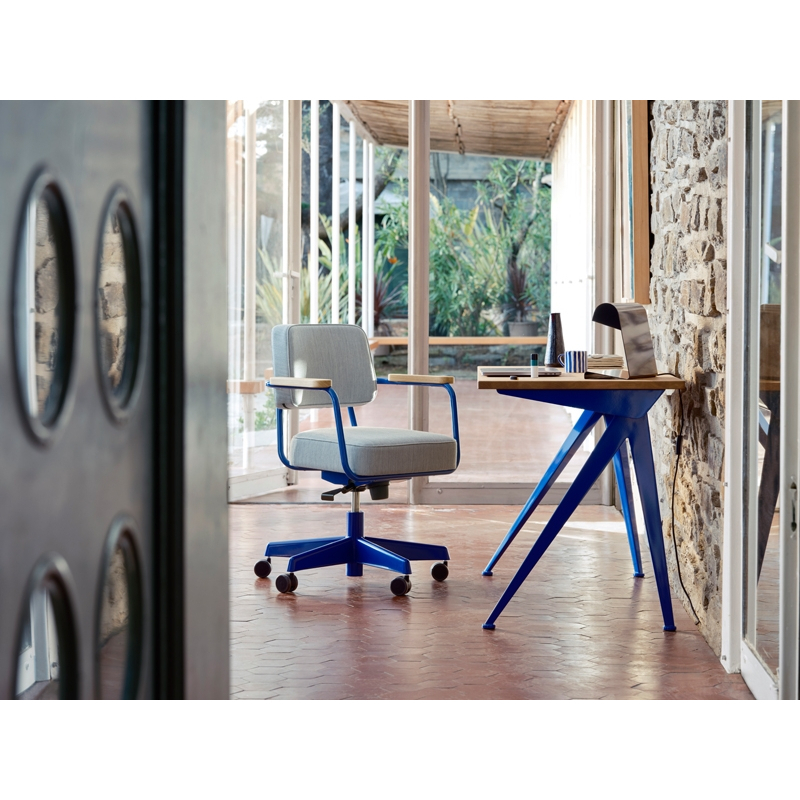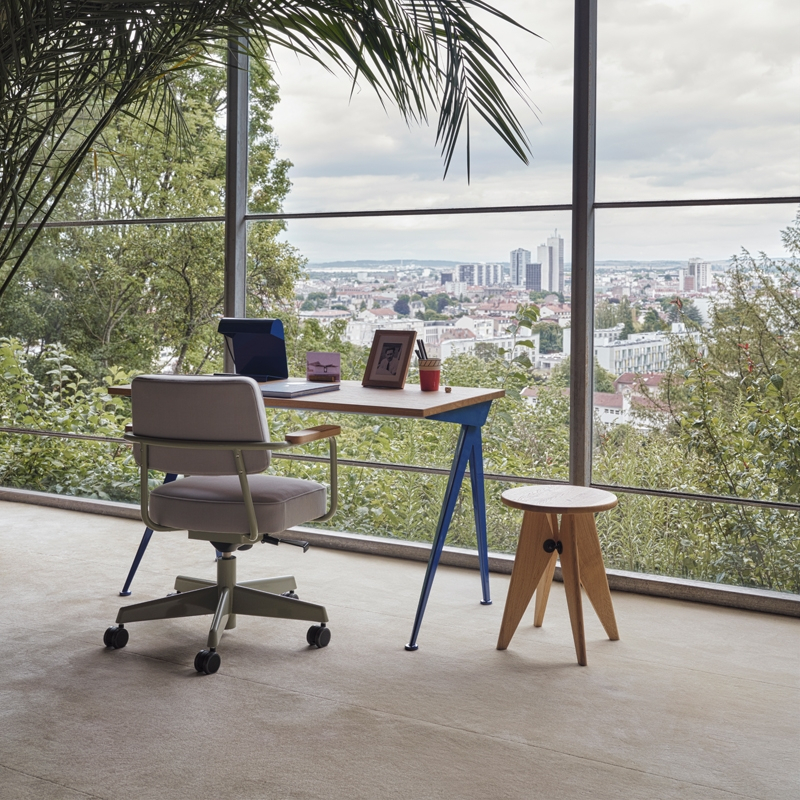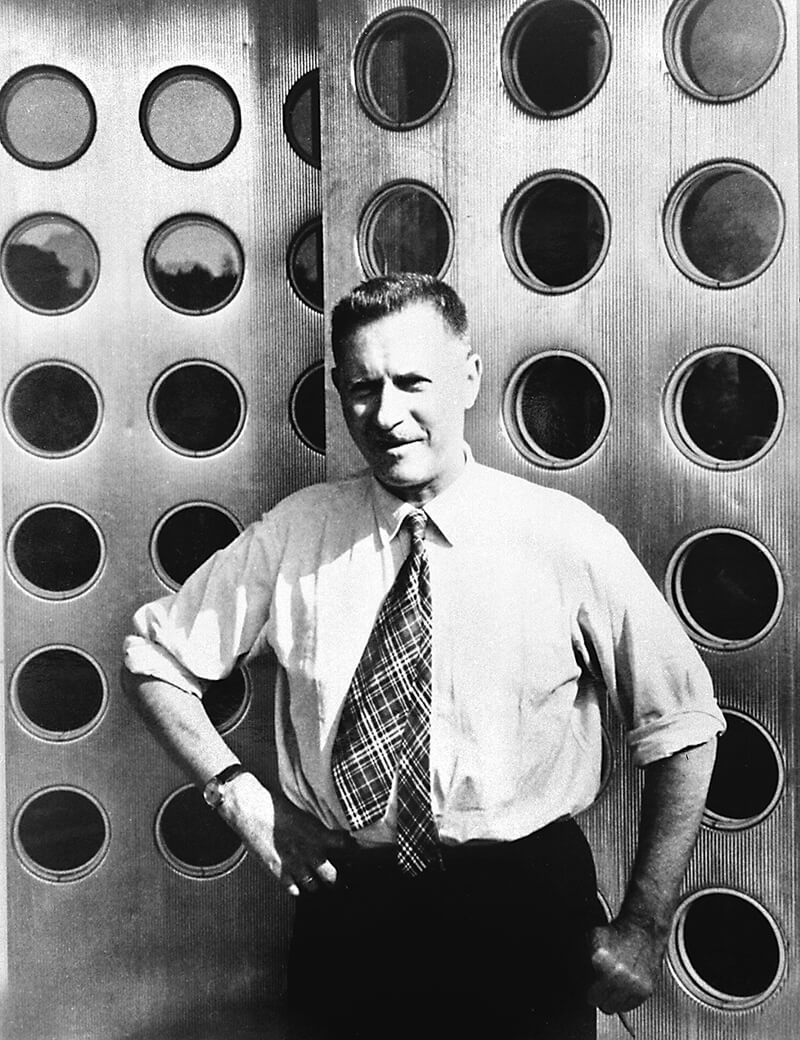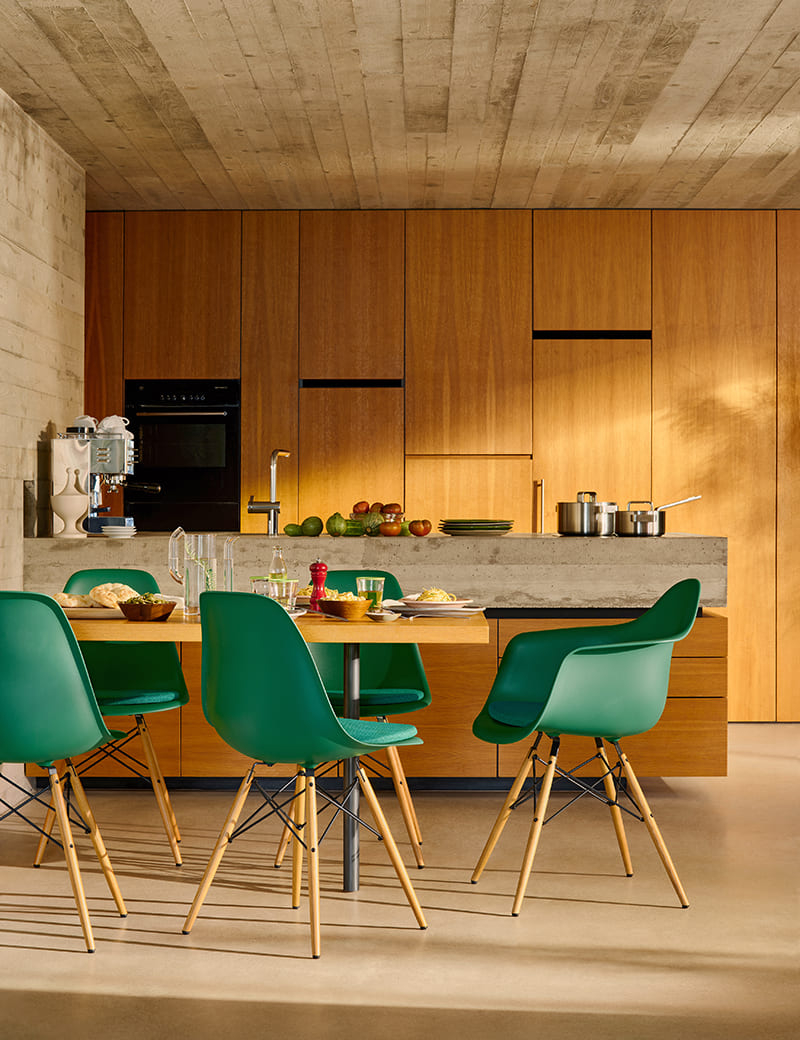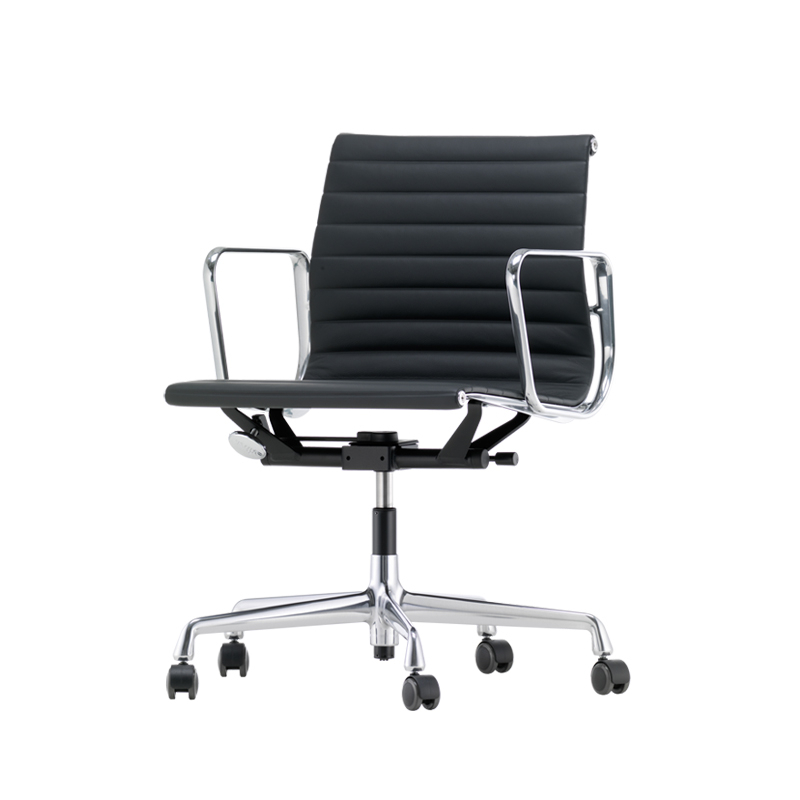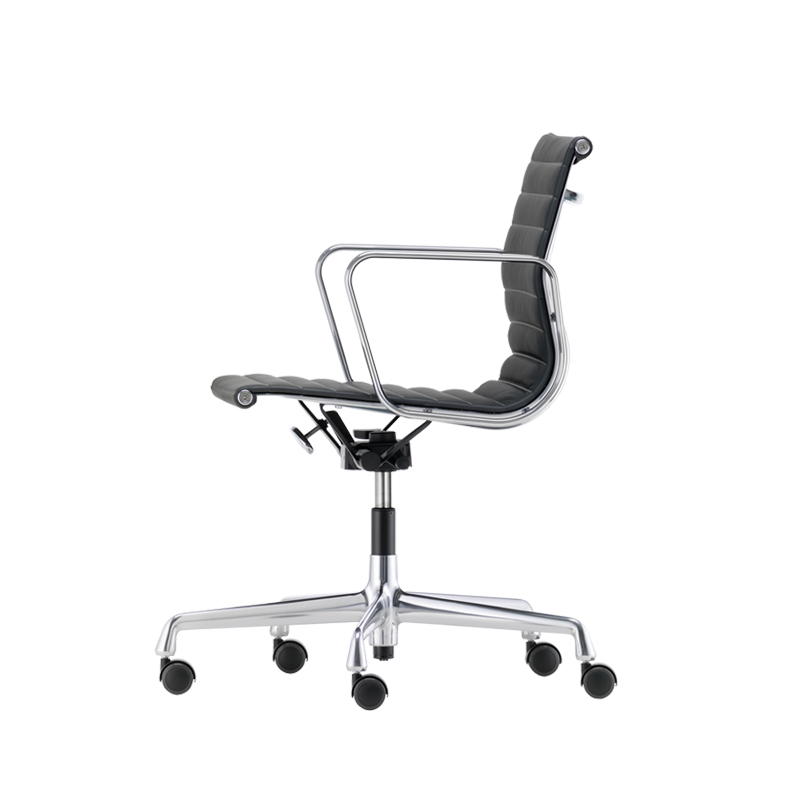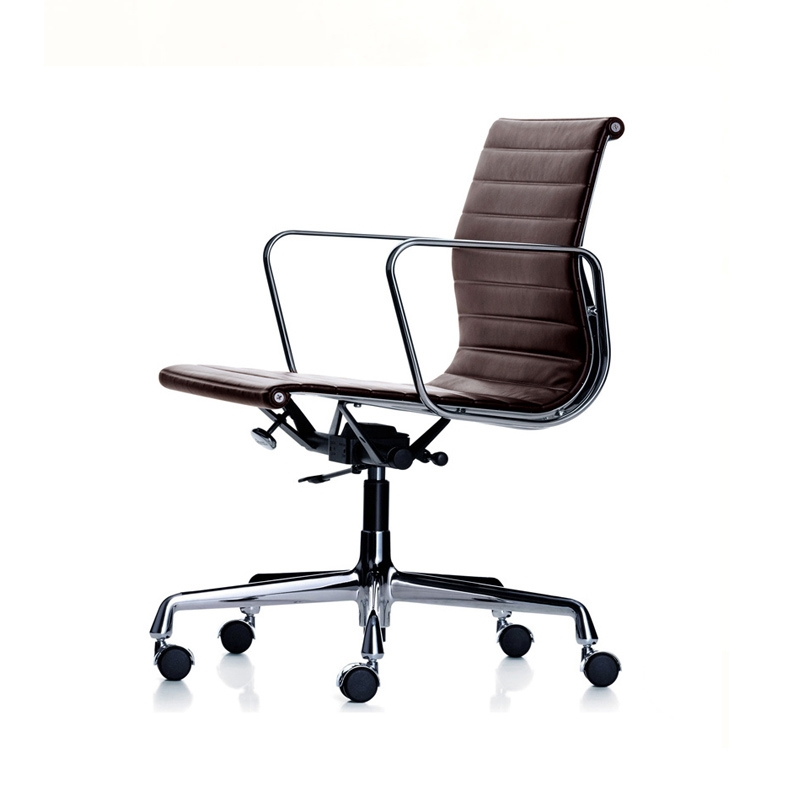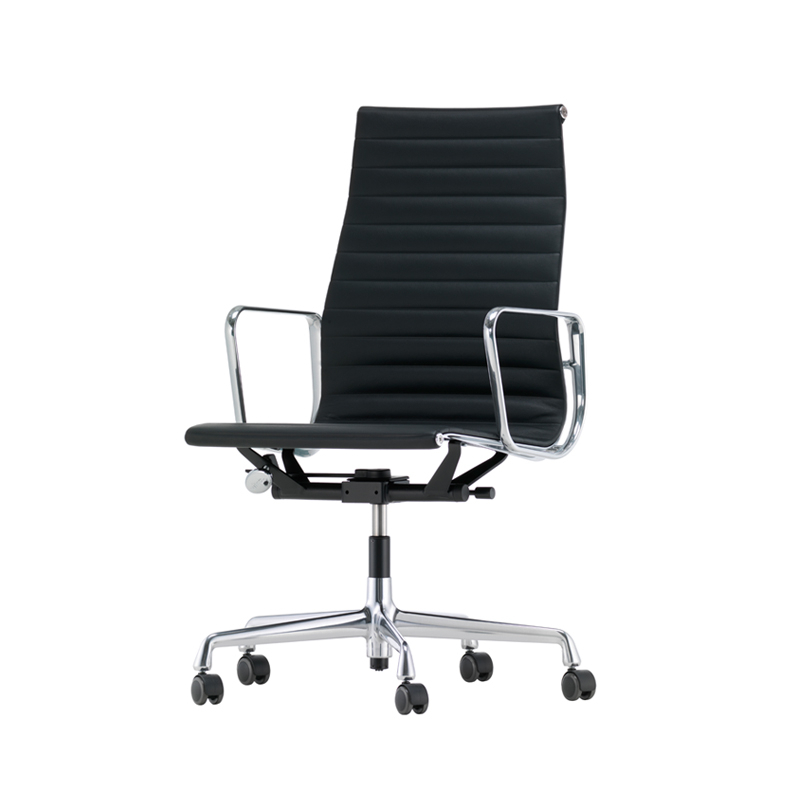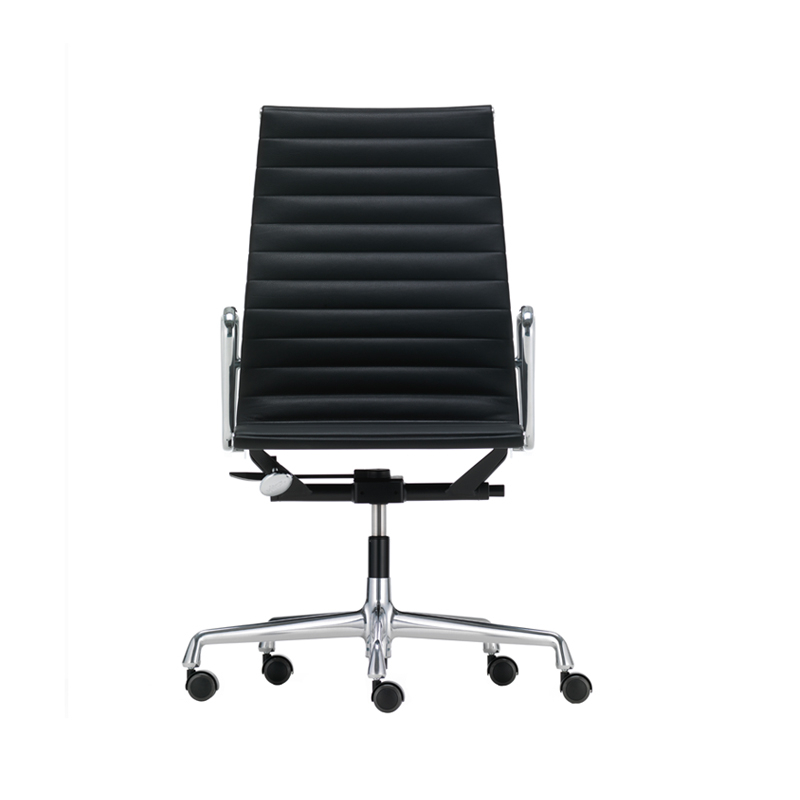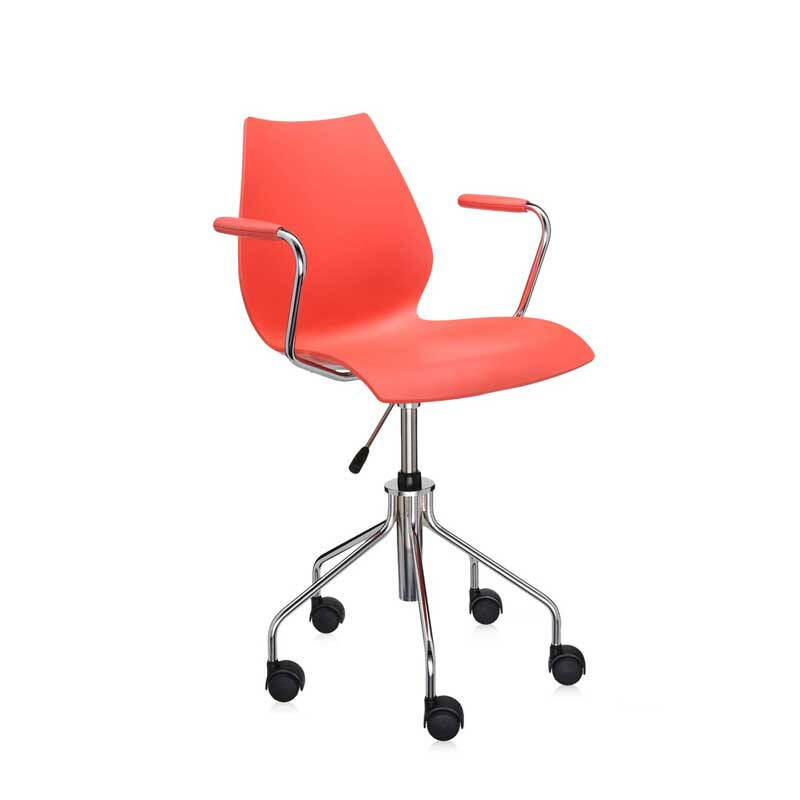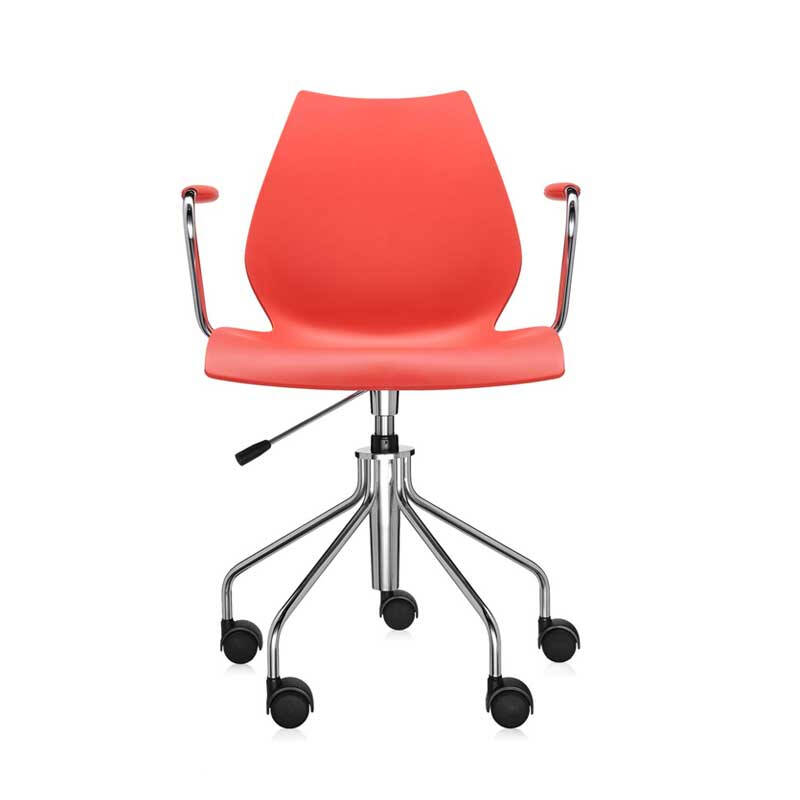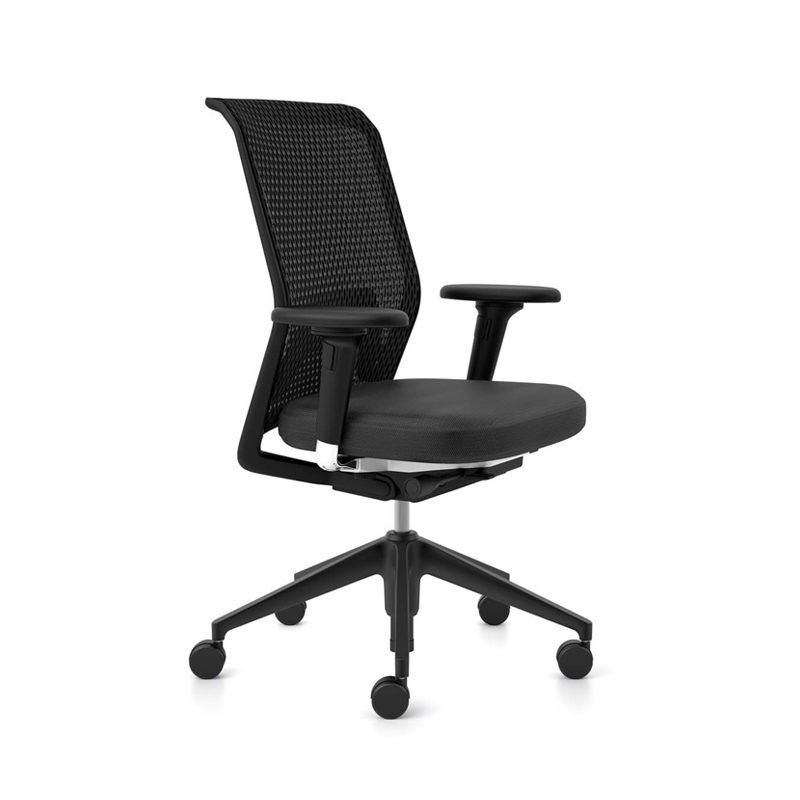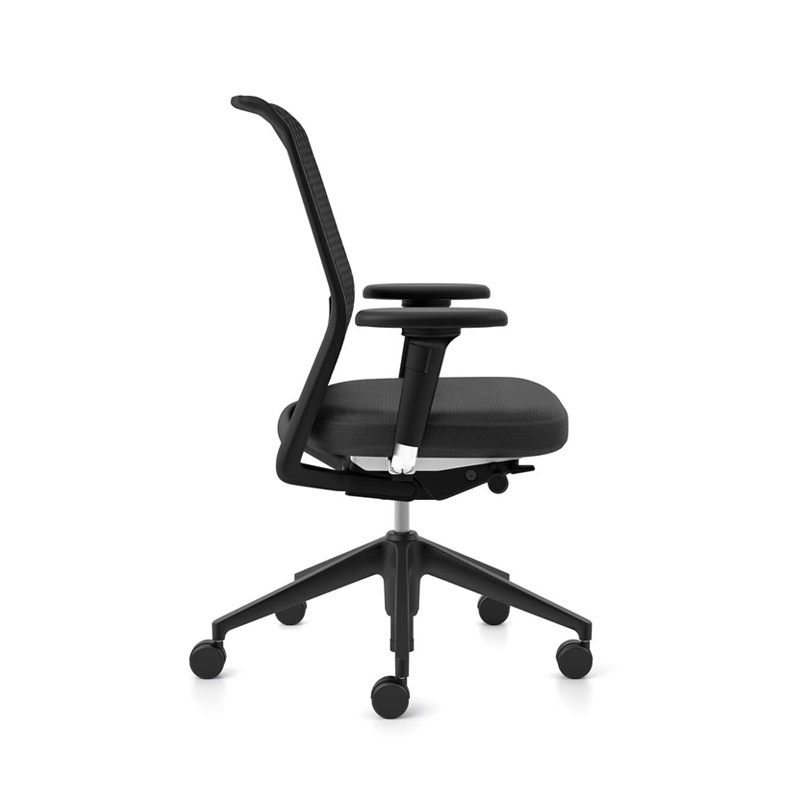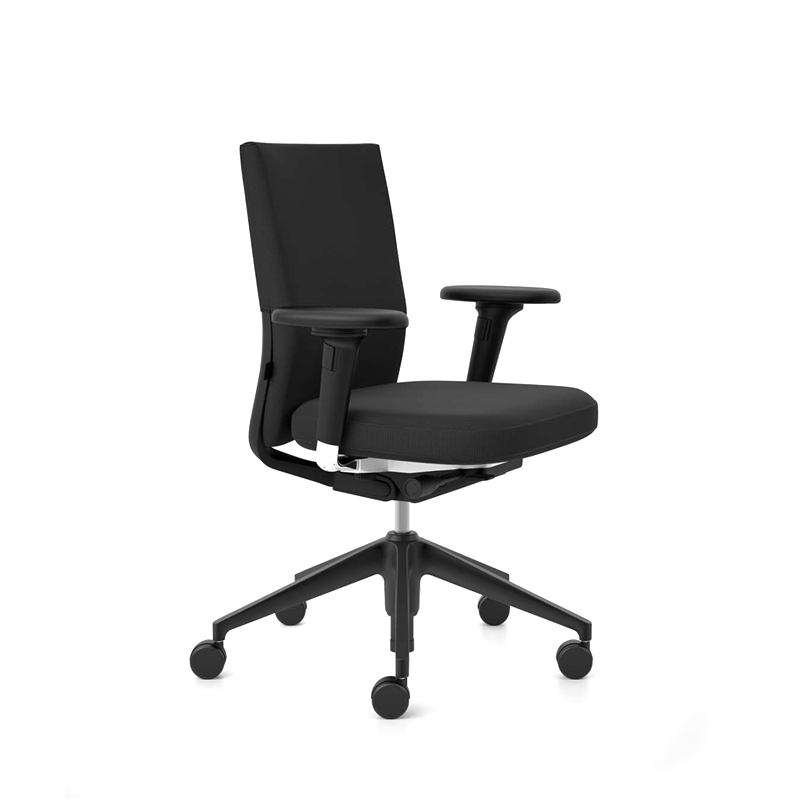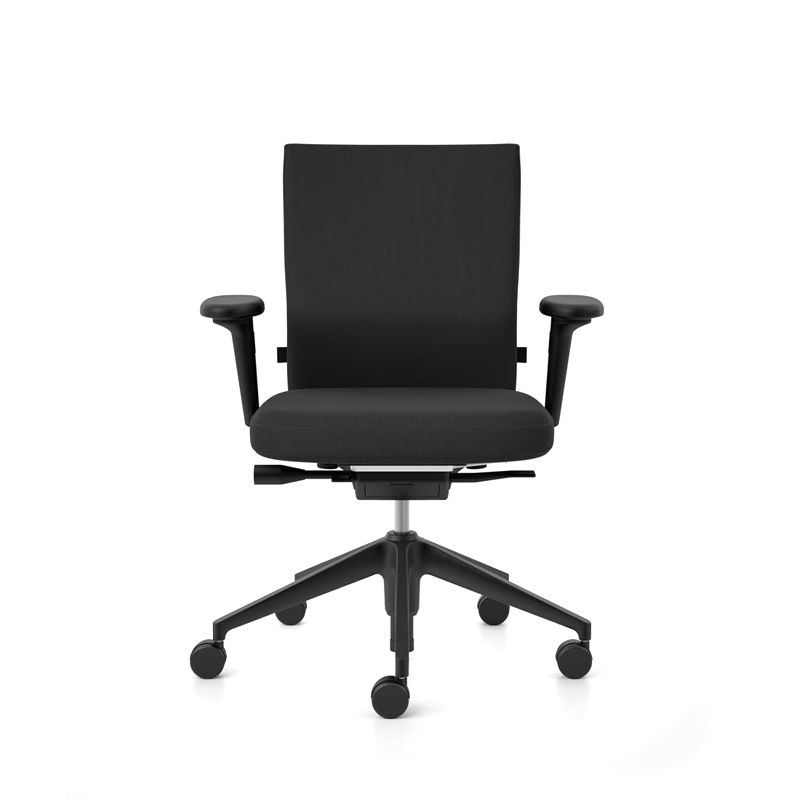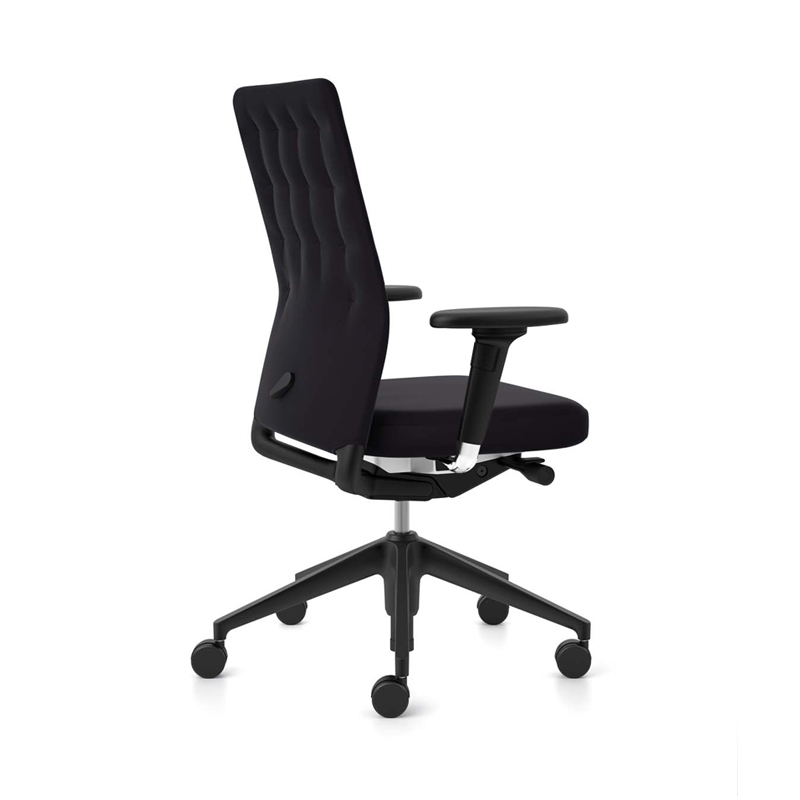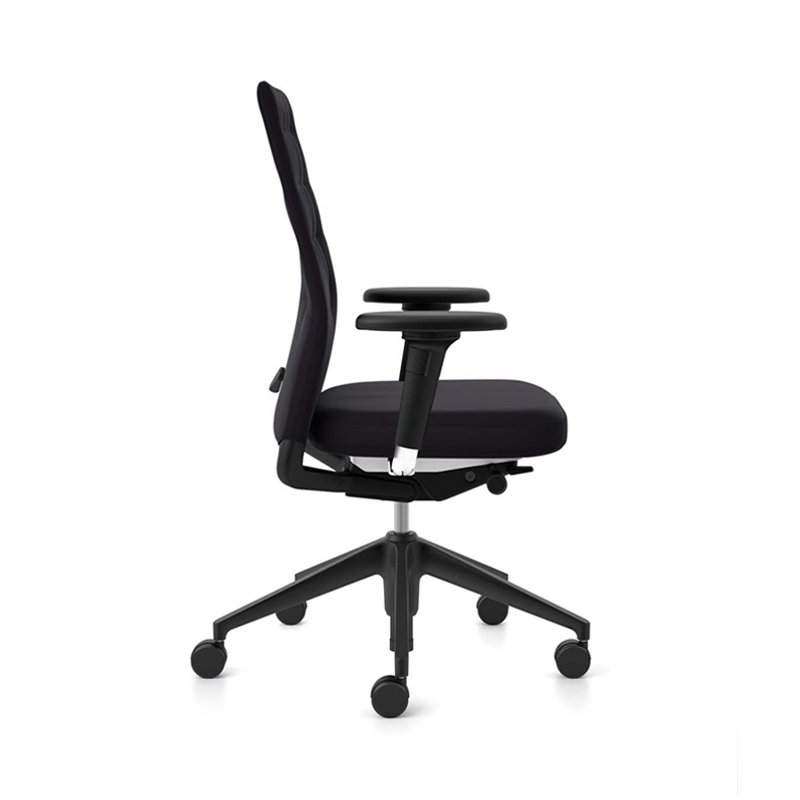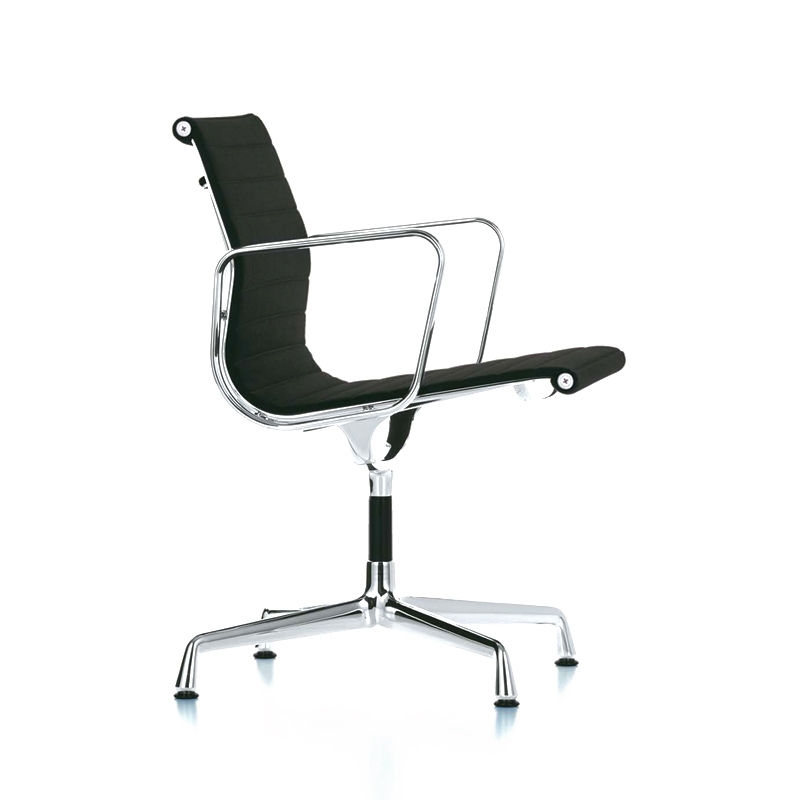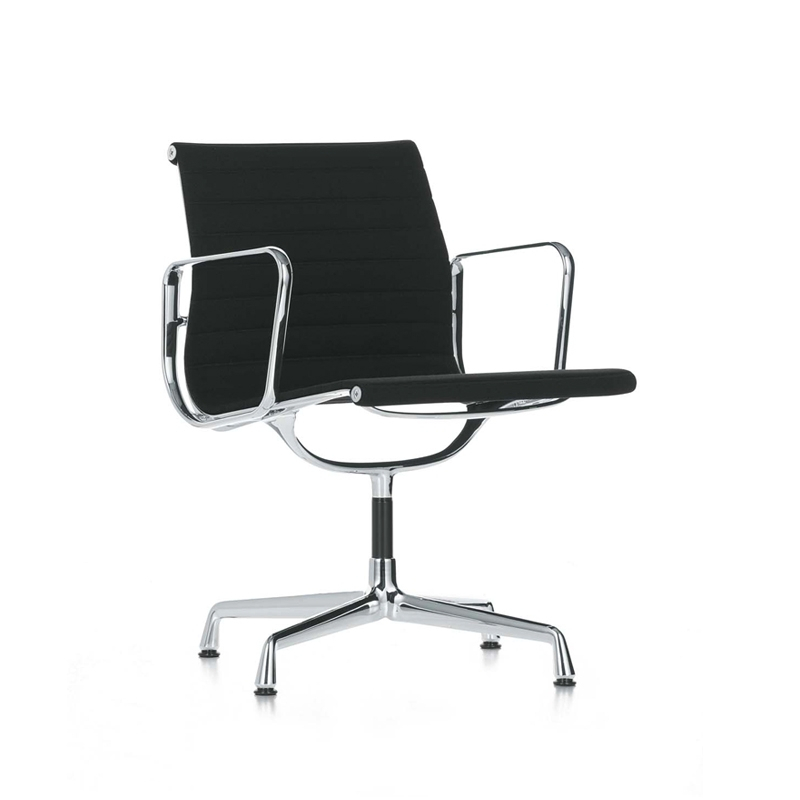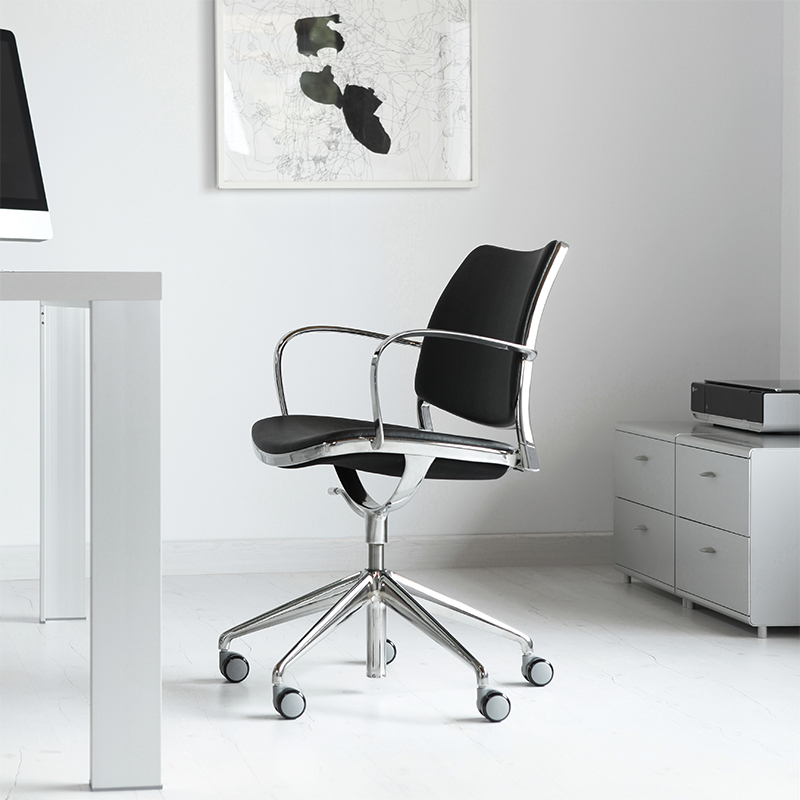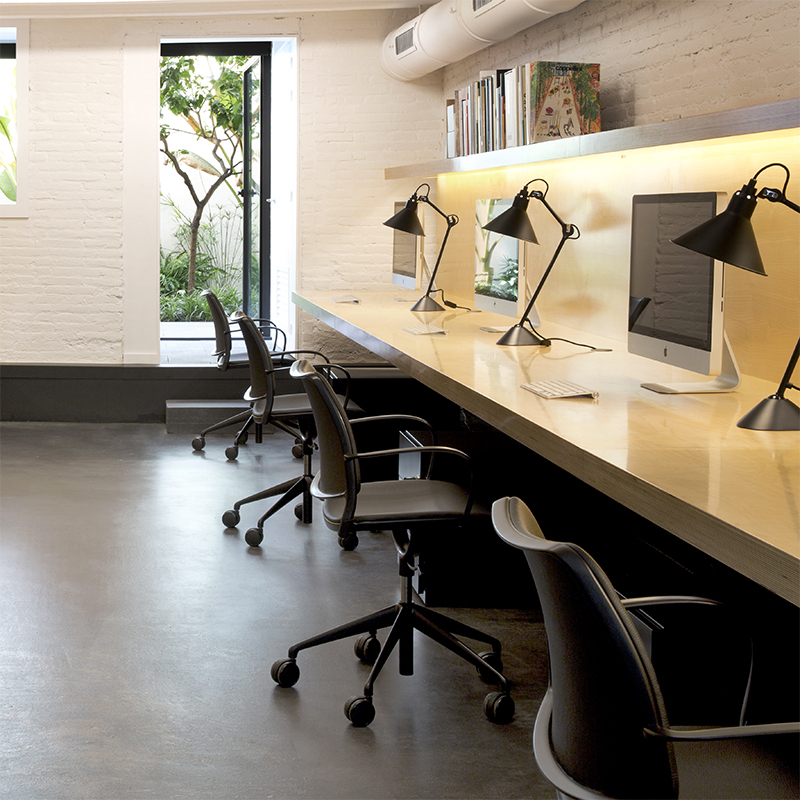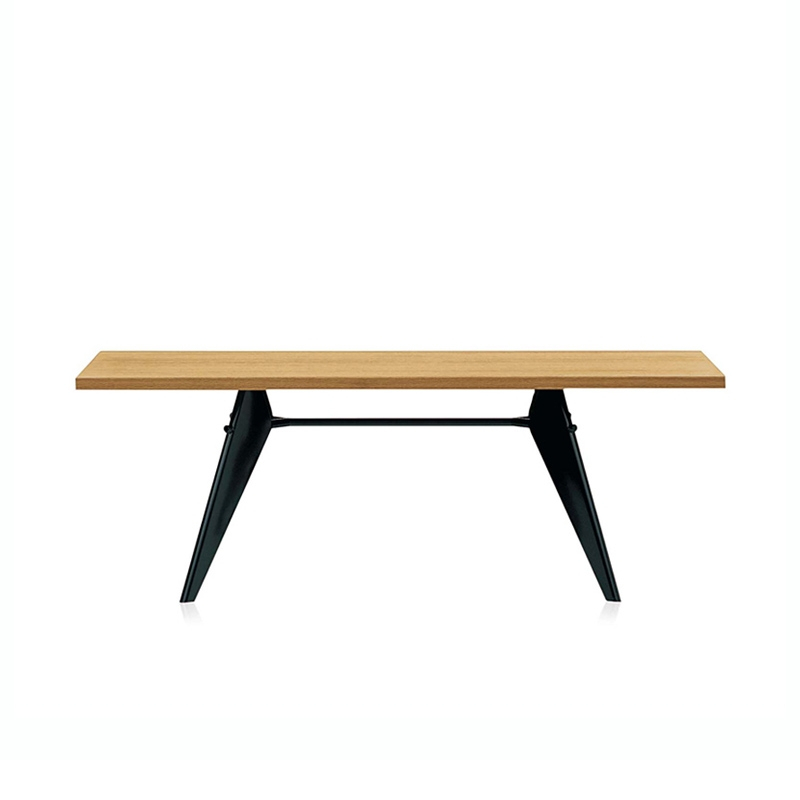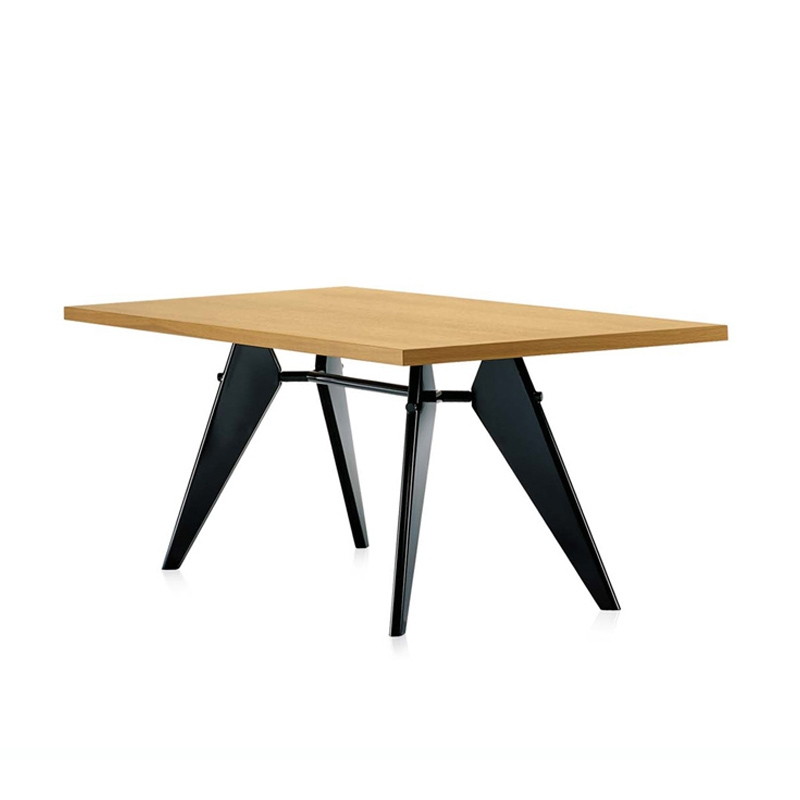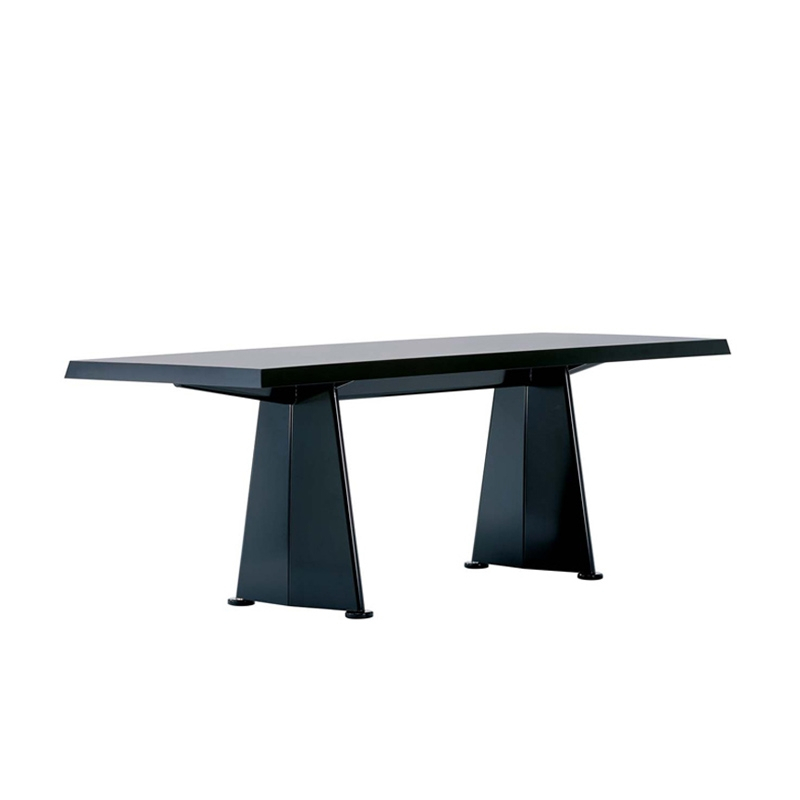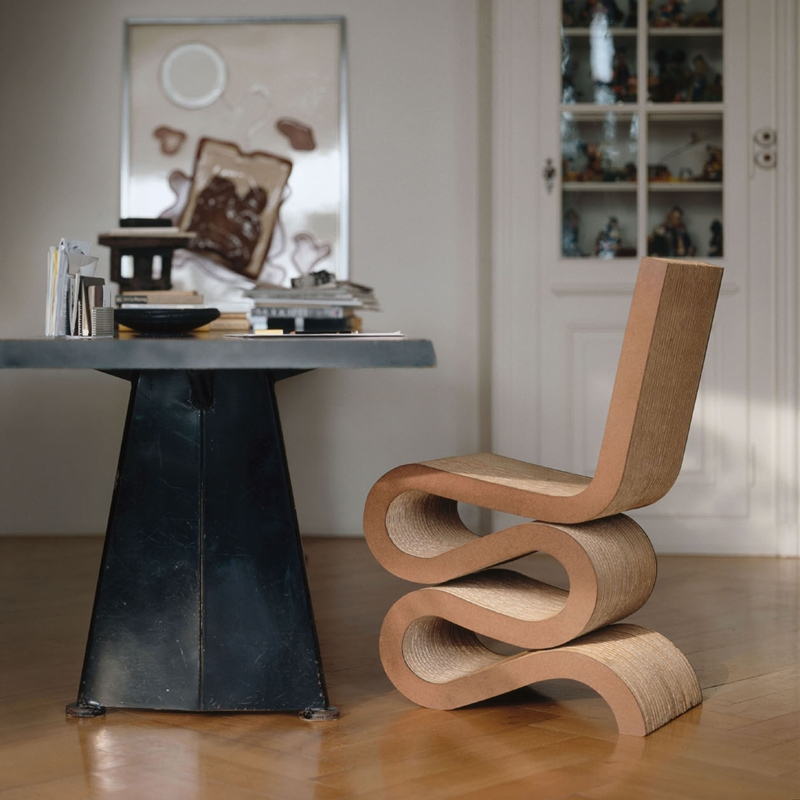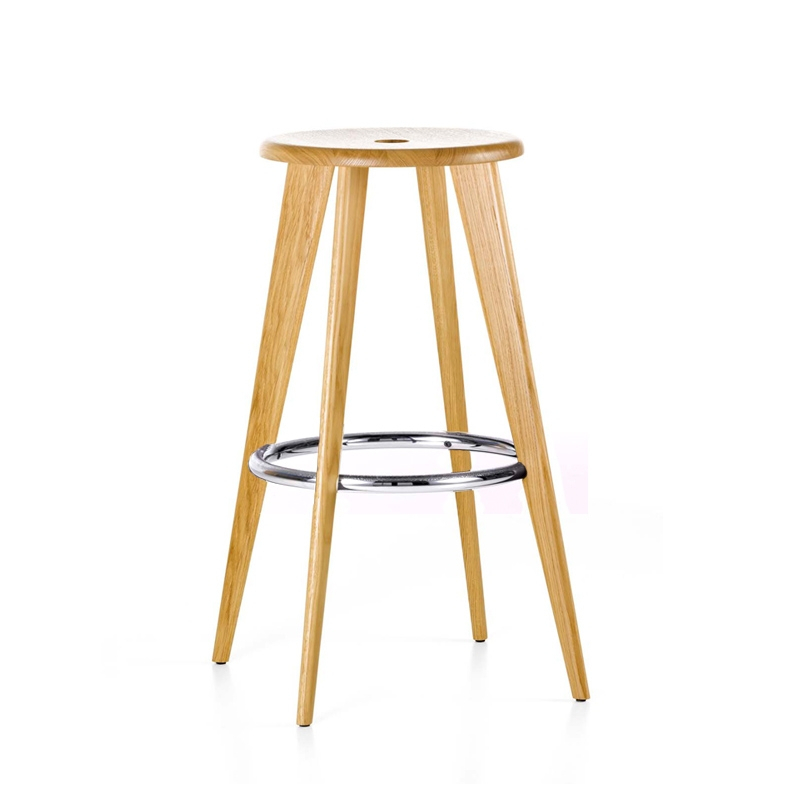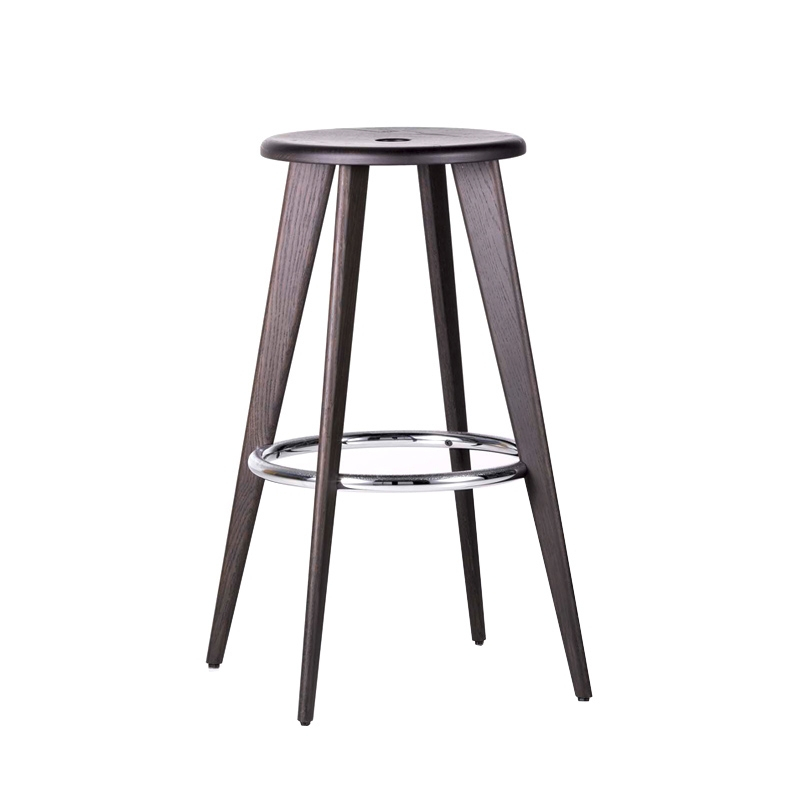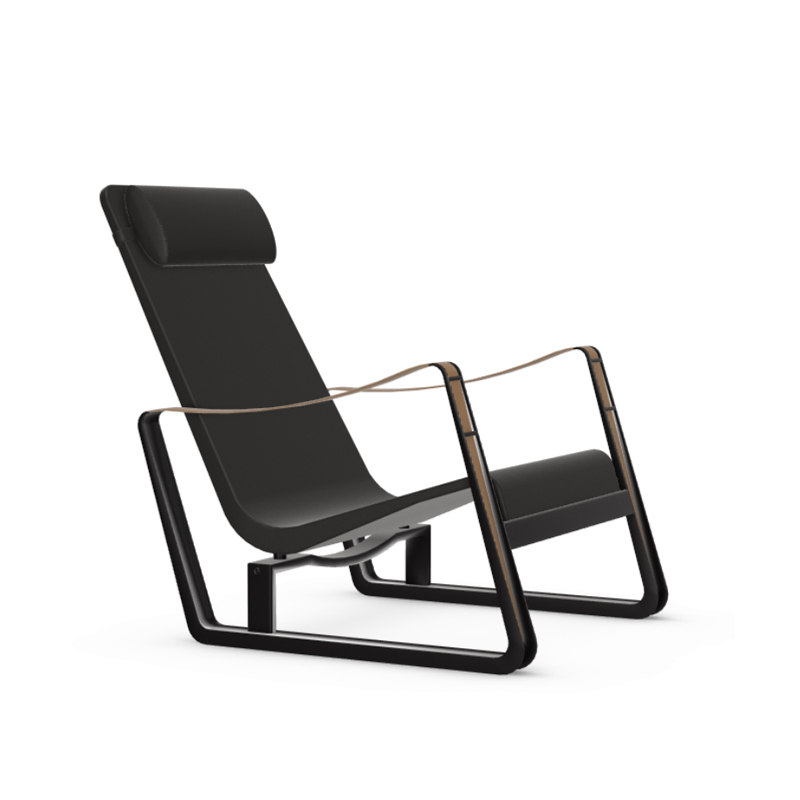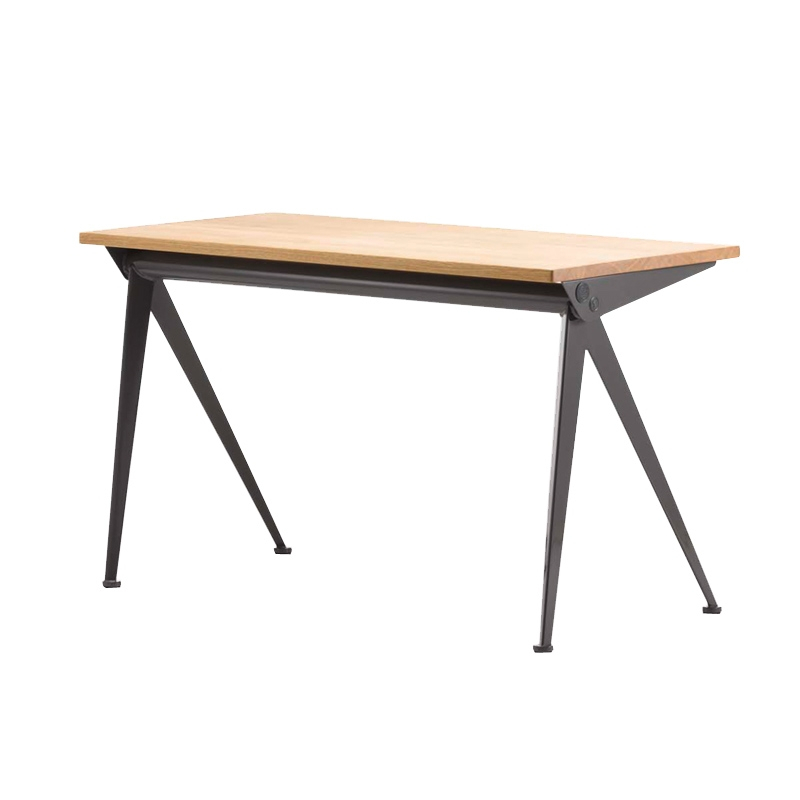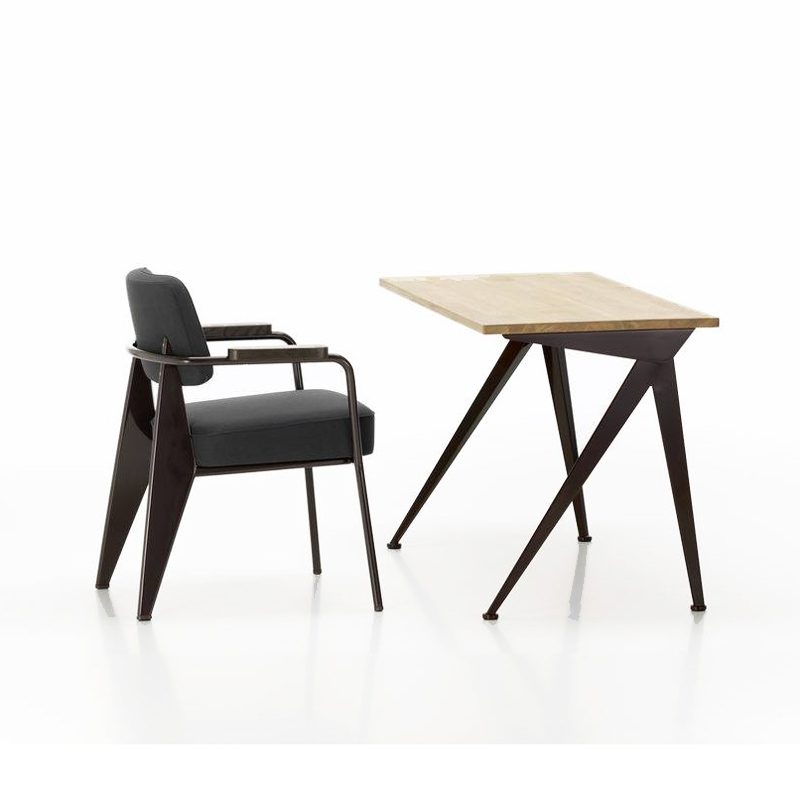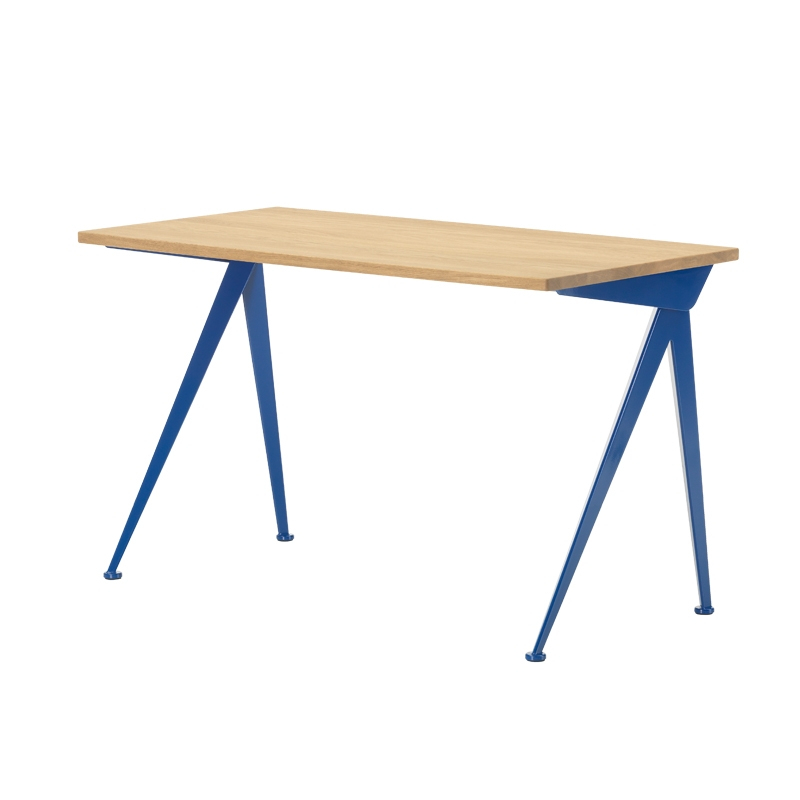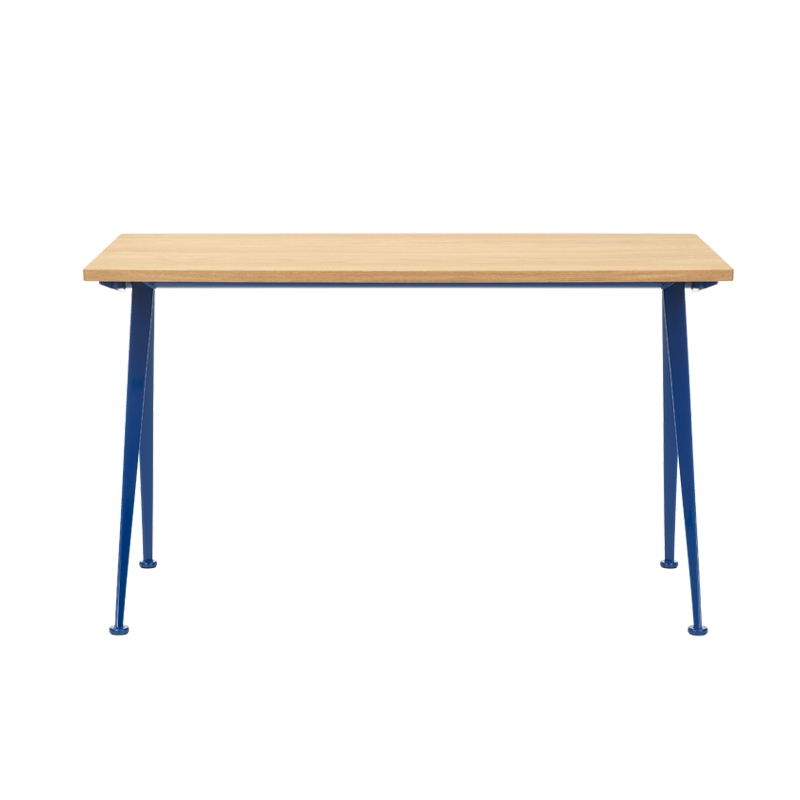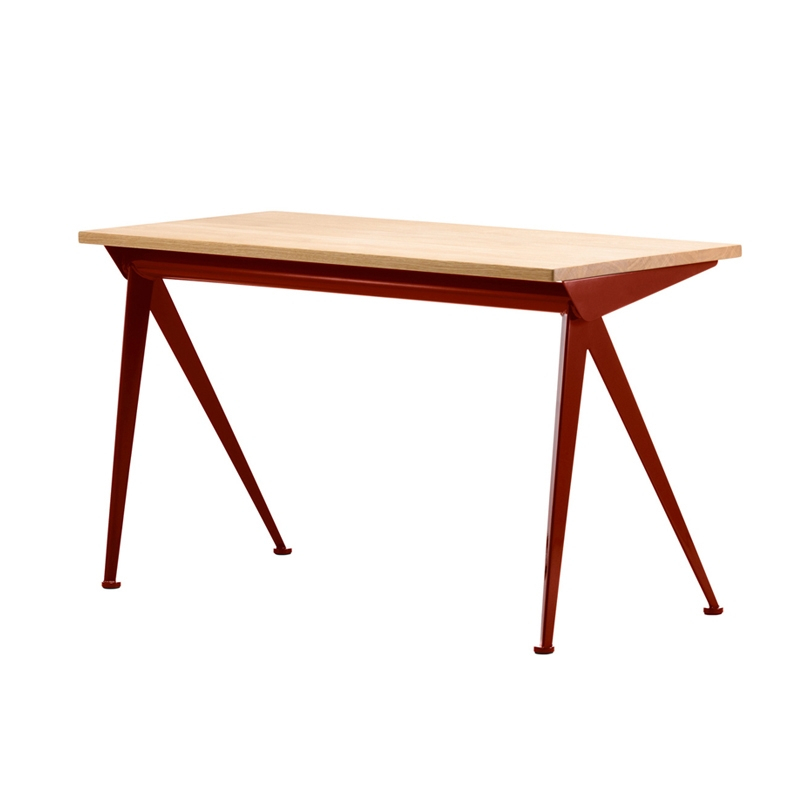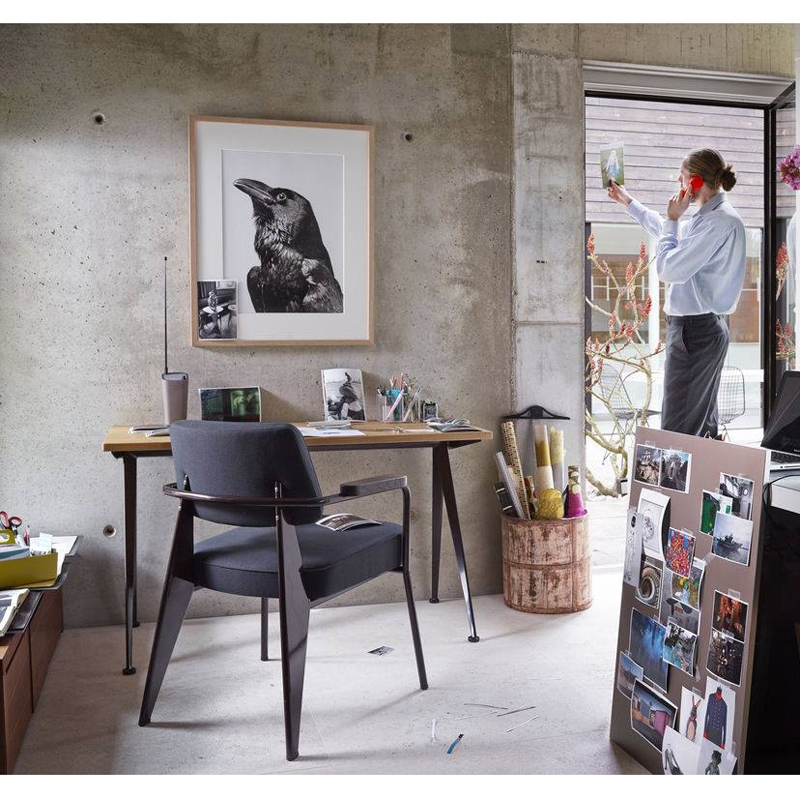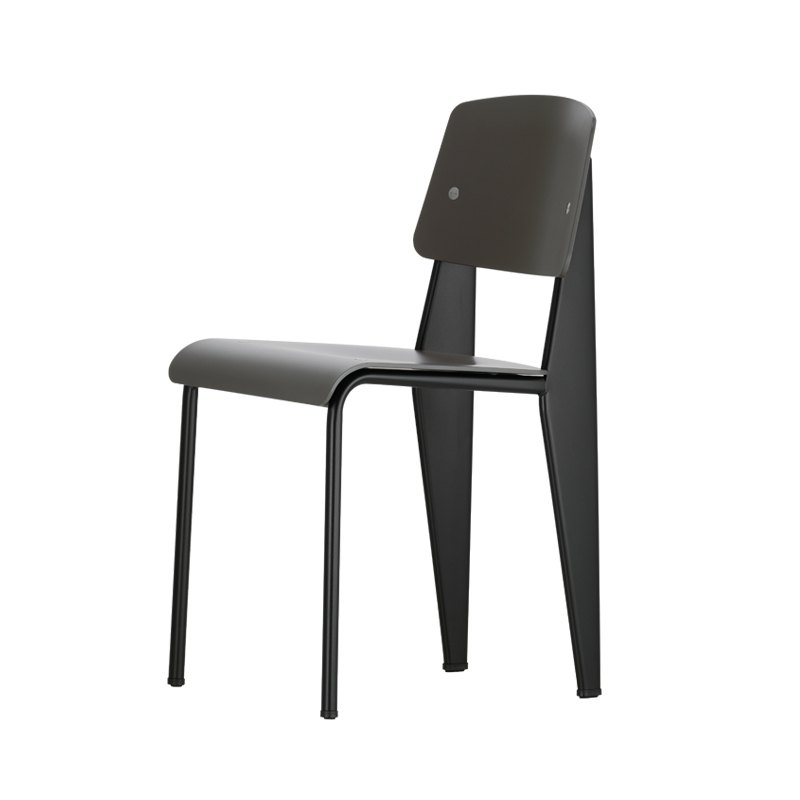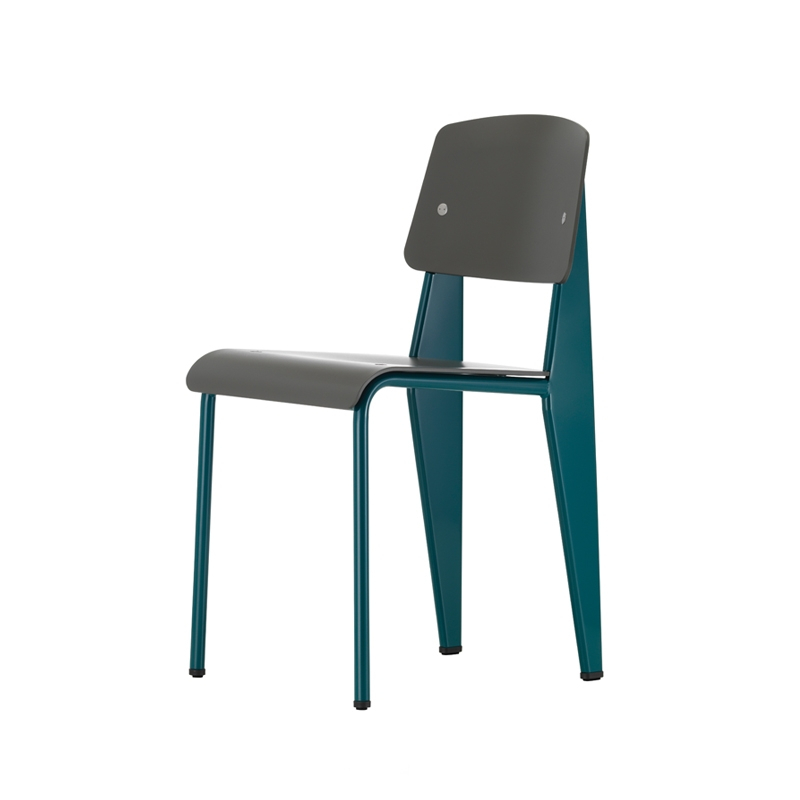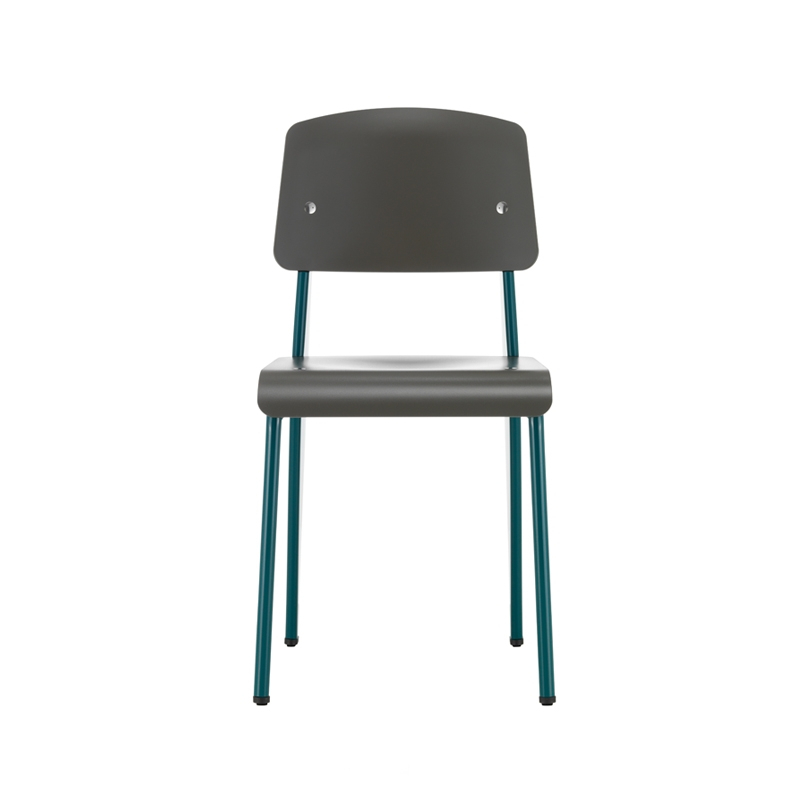- wishlist
-
Cart
Your cart is empty.
menu overlay
menu overlay
Already a customer?
New customer?
Enjoy all the benefits we offer and track your purchases in the order history.
Registermenu overlay
Reset my password
You will receive a link by email to reset your password.
Office Chair SWIVEL STEERING CHAIR Tress bluish grey blend 06/ Prouvé Bleu Marcoule VITRA
€2,985.00
€2,487.50 HT
or in

SWIVEL STEERING CHAIR Tress bluish grey blend 06/ Prouvé Bleu Marcoule
SWIVEL STEERING CHAIR Tress bluish grey blend 06/ Prouvé Bleu Marcoule
€2,985.00
€2,487.50 HT
€2,985.00
€2,487.50 HT
Description
Designed in 1951 by French designer Jean Prouvé, the Fauteuil Direction Pivotant is still as relevant today thanks to its characteristic aesthetic and functional requirements. Published by Vitra, it features a generous upholstered seat and backrest, resting on an elegant frame made from tubular steel and folded sheet metal. The wooden armrests give the office chair a touch of familiar comfort.
The swivel seat of the Swivel Steering Chair is height-adjustable and the rear reclining mechanism can be adapted to the user's individual weight. Thanks to its high level of comfort and wide choice of available finishes, the Executive Chair is an ideal chair for any type of workplace or home office.
Color
Tress gris bleuté mélange 06/ Prouvé Bleu Marcoule
Colour
grey
Material
fabric
Dimensions
l 67 x p 55 x h 83,5-95 cm, assise h 40,5-52 cm
Features
inclinaison arrière réglable, peut être bloquée en position droite - hauteur d‘assise réglable en continu par ressort à gaz - roulettes ø60 mm
Matériaux
rembourrage polyuréthane, revêtement tissu, accoudoirs chêne naturel huilé, acier finition époxy
Notice
- Home
- ▸
- Office Chair
- ▸
- SWIVEL STEERING CHAIR Tress bluish grey blend 06/ Prouvé Bleu Marcoule
What you think of it
Delivery Terms
Delivery possible within 48 hours for in-stock products.
You will also like
By the same designer
menu overlay
Quote request
You will receive a response from us within 24/48 hours
Your contact details
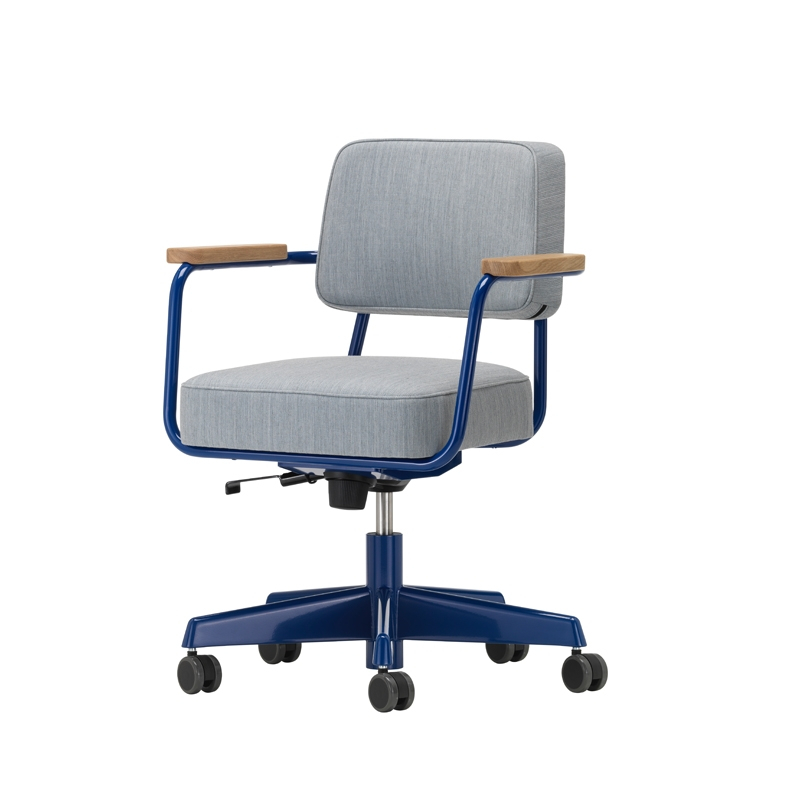
Office Chair
SWIVEL STEERING CHAIR Tress bluish grey blend 06/ Prouvé Bleu Marcoule
VITRA
Color :
Tress gris bleuté mélange 06/ Prouvé Bleu Marcoule
€2,985.00 TTC
€2,985.00 HT
In stock
In stock
€2,985.00 TTC
€2,985.00 HT
Total items :
€2,985.00
Taxes
0 €
Total (VAT incl.)
€2,985.00


